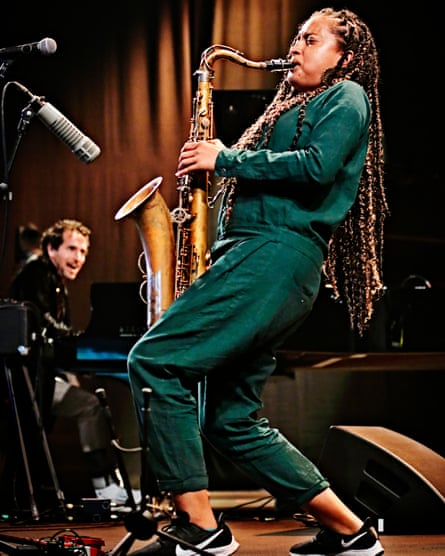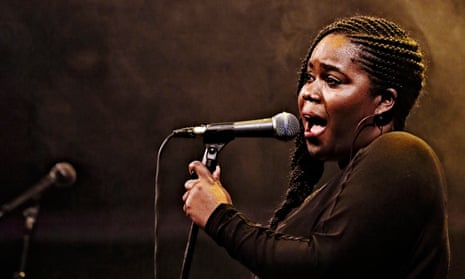The world-renowned British jazz scene will become whiter, posher and dominated by men unless there is more funding to keep access to tuition free, according to the founders of a learning programme that has been credited with transforming UK jazz.
Janine Irons MBE, the co-founder of the Tomorrow’s Warriors jazz programme, said the Covid-19 outbreak had forced it to cancel more than 100 concerts and means without donations it will start charging for the first time since its creation in 1991.
Irons warned if that happened it could turn jazz in the UK, which has been rejuvenated by a group of largely working-class black musicians, into a pursuit for white, middle-class children who can afford tuition.
“If we had to charge, the participants would be mostly white middle-class, and it’ll be mostly boys,” she said. “If you want to have a music industry which reflects the diversity of the society in which we live then you need to make music, and music education, more accessible.”
Tomorrow’s Warriors has launched a crowdfunding campaign to raise £100,000 in order to keep access free and ensure children and young people from low-income backgrounds can participate in its online workshops and educational programme.

Irons said that without more funding the next generation of black working-class musicians would not have access, and British jazz would become less diverse and less interesting.
“What makes the scene so exciting now, is that diversity. We’ve got Femi Koleoso and Ezra Collective, giving us the afrobeat. We’ve got Nubya Garcia doing the dub stuff. Shabaka Hutchings is doing all kinds of things,” she said. “It’s incredibly diverse music but to keep that you’ve got to make sure everyone’s coming to this party.”
Irons said Tomorrow’s Warriors got around 30% of its funding from the Arts Council, but that it was increasingly dependent on trusts and donations because its live gig programme had been stopped due to the Covid-19 crisis.
Tomorrow’s Warriors, which was set up by Irons and her husband, Gary Crosby, who was the first jazz recipient of the Queen’s Medal for Music, has given free tuition and career support to more than 10,000 British jazz musicians since its inception.
Artists including the Mercury prize-nominated Cassie Kinoshi, Moses Boyd, Garcia and Soweto Kinch have all come through its workshops and educational programmes, which before the Covid-19 pandemic were regularly held at the Southbank Centre for musicians from the age of 11 to 25.
Its success has been praised by the New York Times, which said the players who have developed under its guidance are “breathing new life into the genre” and jazz singer Zara McFarlane, who is also a Tomorrow’s Warrior graduate, said the programme gave her confidence and the chance to play gigs abroad.
“They really did give me a grounding in jazz and taught me what that is to perform it on stage,” said McFarlane. “They really have held a space that is unique because they engage with young musicians who are trying to get into jazz. But it’s also about their audiences. It was very rare when I started doing jazz, to see many black people in the audience, that’s not the case now.”
McFarlane said she would have struggled to have afforded to pay for the sessions she did with Tomorrow’s Warriors and that payment would be a barrier to entry for many young people that would make taking part “unattractive”.
Last year the Guardian found that jazz had had a huge rise of interest among younger people in the UK. Spotify said about 40% of jazz listening on its service was done by people under 30, while another streaming website, Deezer, said there was a 15% increase in 18- to 25-year-olds streaming jazz between June 2018 and June 2019.
Irons said reaching the fundraising goal would mean that Tomorrow’s Warriors could keep training another group of British jazz musicians. She said: “We can’t do nothing. Those young people still need to keep practising, they need to keep learning so that when we do eventually emerge from this, we are actually still going to have some young musicians who are in training and developing.”
